 Reviewed by
Anton Giuroiu
Reviewed by
Anton Giuroiu
Many people have to deal with the problem of a noisy neighborhood every day.
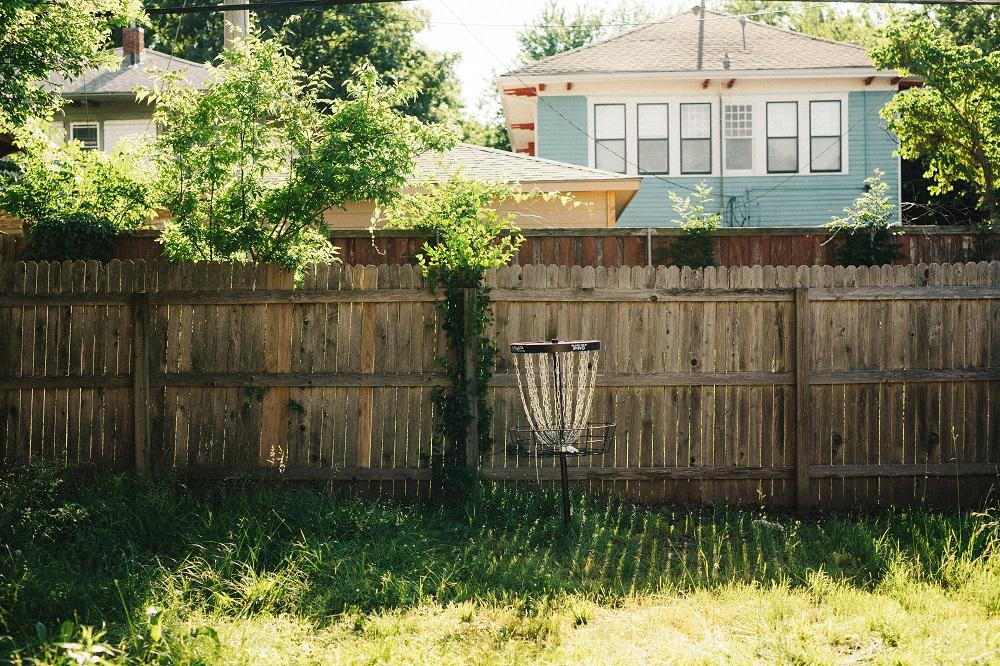
There are numerous sources of such noise, ranging from loud music from the house next door to traffic noise from vehicles on a busy street. Soundproof fences are one of the most effective ways by which you can deal with noise pollution in your vicinity.
While soundproof fences cannot block out sound completely, they are highly effective in providing insulation against it to your home and yard. Additionally, they help protect your privacy by preventing sound from inside your home from being heard outside. However, the problem lies in finding the ideal product that perfectly fulfills your needs.
Different options are available for different requirements, as not all soundproof fences are suitable for all situations. That said, we have conducted some in-depth research and compiled this list of the best soundproof fences to make your job easier.
So, let’s get started!
Types of Fences for Noise Reduction
Solid Fence
A solid fence is the most effective type of fence for noise reduction. It is usually made of a material such as wood, vinyl, or metal, and features a dense construction that absorbs and blocks sound, as you know mass is the best solution for noise reduction. This type of fence is best for blocking out loud noises from a nearby road or other sources, as it does not allow sound to pass through.
Solid fences ought to be built to specific heights to provide additional soundproofing benefits and always consider the source of the sound.
Acoustic Fence
An acoustic fence is a type of soundproof fence that is specially designed to reduce sound levels. It is usually made of a sound-absorbing material such as foam, which is strategically placed between two layers of metal, wood, or vinyl. This type of fence is most effective at blocking out lower-frequency noises, such as those from cars, trains, and airplanes but is limited in the amount of noise it can block.
Acoustic fences are also great for reducing noise from nearby sources, such as a neighbor’s loud music or machinery.
Best Fence For Noise Reduction
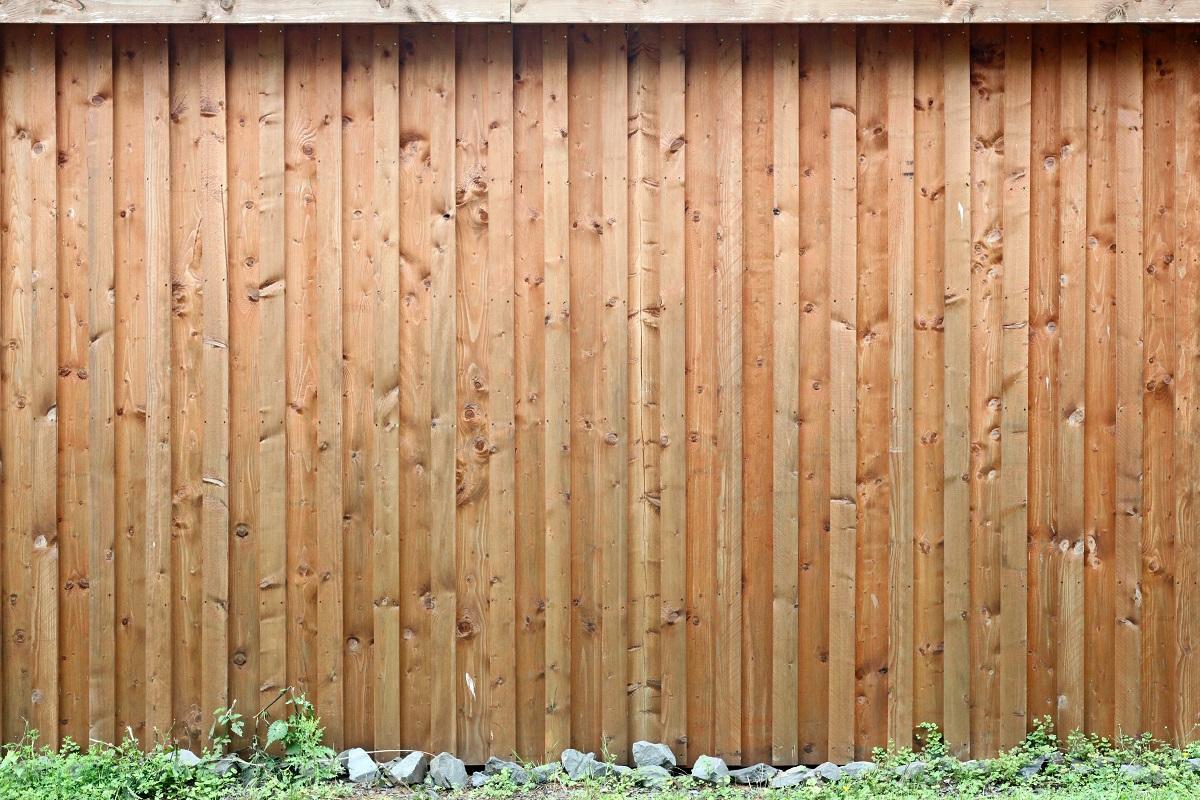
1. Mass Loaded Vinyl Fence

Mass-loaded vinyl (MLV) fences, also known as noise block soundproof fences, are thick, heavy vinyl sheets that include metal particles to increase the mass. MLV is usually available in sheets or rolls and is highly flexible, durable, and weatherproof.
These features make it versatile and excellent for use on various surfaces, including doors, ceilings, walls, and floors. Similarly, you can also use it on fences for noise reduction.
Mass-loaded vinyl can be easily installed on any fence and is one of the most cost-effective options currently available on the market. Additionally, it is very flexible and durable, due to which it tends to last for a significant amount of time.
The only thing to remember is that you need to be very careful during the installation process. That said, mass-loaded vinyl can tear very quickly if the proper installation procedure is not followed.
To ensure that there is no problem during the installation process, first, measure your home fence to ensure that you get the right amount of material and avoid wastage. Make sure to find the area of the fence in square feet. In case of a limited budget, cover only the sensitive areas. Then purchase the thick vinyl sheets based on the measurement.
You can either use adhesives to fix the material to the fencing or use a nail and hammer. Cut the sheets as required for installation and mark the points where the nails and screws will go. Drill the holes in the fence at these points and nail the sheets to them. Alternatively, if you use an adhesive or nail gun, there is no need to drill holes in the fence.
2. Wooden Fence
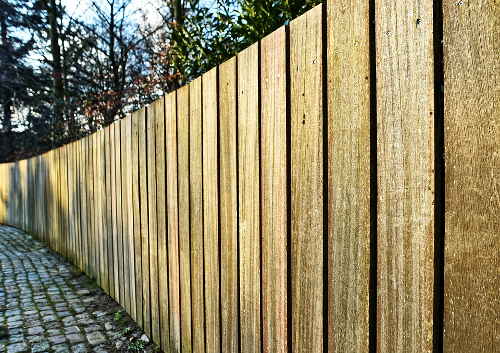
Another excellent solution to reduce noise in your backyard is using wooden fences. Closely packed boards or wooden planks with no gaps between them can effectively block the noise coming from outside. The thicker the wooden fence, the more effectively it can prevent sound from coming in. Additionally, you can build a tall fence for the best results when going with this option.
Cedar and redwood are two of the most popular types of thick wood that are excellent for building wooden soundproof fences. Quality wooden fences are made from thick timber that can block noise from the outside easily. Wooden fences also offer a more appealing outdoor area than other types of fences and can be painted in different colors.
When installing a timber fence, go for a thick and solid wooden fence at least two meters high that covers the ground, leaving no gaps. One of the most significant advantages of wooden fences is that they are very affordable and easy to install. However, they are not as durable as other options on the market, such as cement or brick wall fencing.
One reason for this is that the wood tends to split over time due to weather conditions, meaning such fences require constant and regular maintenance. One way to prevent this is by covering the wood with a weatherproof panel or soundproof foam, thus increasing the fence’s durability.
Alternatively, you can use weatherproof paint on the fence to protect it from termites and make it corrosion-free. Growing plants and bushes or using straw bales can also add to the effectiveness of the noise-blocking fence.
Wooden fences are one of the best options for DIY enthusiasts, as they can easily be constructed at home. However, it is recommended to take the help of a carpenter for convenience.
3. Heavy Corrugated Metal Fence

One of the most effective materials for blocking airborne noise is metal, which can be used alone or with other fences. Metal provides perfect insulation against noises such as children playing, dogs barking, etc.
A heavily corrugated metal fence or heavy metallic sheeting over a standard fence can both be viable choices for soundproof fences. While metal is highly effective in blocking out airborne sounds, it cannot block vibrations very effectively. They can even amplify vibrations, so you cannot use them at all locations.
Layered metal fencing can be a superb option and acts as a soundproof fence by offering multiple solid obstacles to sound waves. Fences made of metal alloys also have an excellent sound absorption capacity and can be used in residential and commercial areas.
While metal fencing may not be very pleasing appearance-wise, it can also be painted in different colors with anti-corrosive paints to make it more appealing. Metal fencing can also be installed using DIY methods.
Corrugated metal is also resistant to water and corrosion, offering long-lasting durability. Keep in mind that most metals are excellent conductors of heat, making touching these fences difficult in the summer.
Also, remember that a metal noise-blocking fence has almost no acoustic properties, making it unsuitable for coastal or windy areas.
4. Brushwood Fence
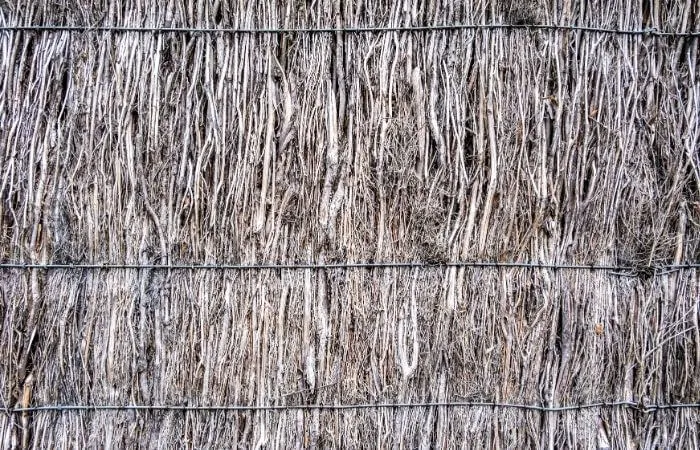
Brushwood fences are made up of undergrowth and contain small branches and twigs. They are relatively cheap to install and are highly durable. For a brushwood fence to be effective for soundproofing purposes, it must be at least half a meter wide and over 60 centimeters high.
Brushwood fences were one of the first types to be constructed, originating in ancient Japan. However, they have become trendy in recent years as a more natural method of soundproofing an area. They are used to muffle or dampen sounds, reflect some of the sounds, and absorb some of them.
Brushwood fences, also known as heather fences, are affordable for those unwilling to spend on costlier alternatives. It can easily last for up to 20 years. However, brushwood fences may not be compatible with modern construction designs and are not suitable for areas prone to fires.
Also, remember that the thicker the fence, the more effective it is against noise. A heather fence can also be used to cover up chain-link fences to create a privacy screen. Fence height, density, and coverage are essential factors to consider when installing a brushwood fence.
Brushwood fencing can be tailored to suit specific needs; not only can it be easily molded to fit the location as required, but the density can also be altered for increasing effectiveness. Remember that the greater the mass of a substance, the harder it is for sound to pass through it. So, make the brushwood fence as thick as possible to block noise such as those of lawnmowers and noisy neighbors.
5. Acoustic Fence
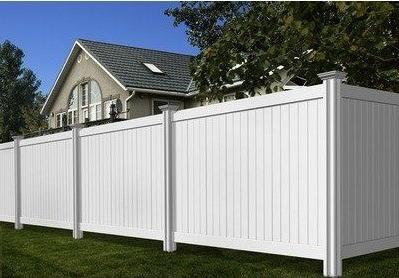
Acoustic fences are specially created for noise reduction and are one of the best solutions to this problem. They are not only tall and dense but are also covered with sound-deadening materials for greater effectiveness. Acoustic fences are also excellent for reducing sound vibrations, such as road noise, unlike metallic fences that easily transmit vibrations.
Generally, acoustic fences are made of plastic composite or layered wood and are easy to install. They are also more economical than building brick fences and can be styled to create a personalized backyard space. Additionally, they are an excellent option for ensuring your privacy by preventing sound from within your home from traveling outside.
Acoustic panels are becoming increasingly easy to find and can be easy to use to construct such fences. Acoustic fences are also lightweight and provide a sleek and modern aesthetic. Homeowners and industrial and commercial establishments popularly use them to block out sound.
The installation process of an acoustic wrap for your fence is relatively straightforward. Purchase the wrap according to the measurements of your fence. These wraps are available in the form of rolls, which should first be left out in the sun for a few hours. It helps straighten them out before the application process.
Then, use chalk or markers to mark the spots for screws and washers, which will help even weight distribution and avoid tearing the acoustic wrap. Finally, attach the acoustic panel to the fence while maintaining a distance of at least 50 mm from the edges to prevent tearing.
6. Brick Wall Fence
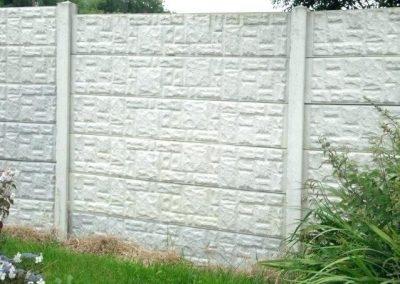
Brick walls are one of the best and most effective ways to drown out the sound from outside. Brick walls can act as excellent fences for keeping noise out and can be built as high as required. These tall fences are so effective that they can also prevent heavy traffic noises from entering your home, among other noise sources.
The reason brick walls are so effective in noise reduction is their density. The denser the medium, the slower the sound vibrations and waves can travel through the solid fence. That is one of the reasons why there are legal requirements in factories that use heavy machinery requiring the mandatory use of thick brick walls.
Creating solid brick or cement walls is an excellent option for a permanent solution and will last long. Due to the substantial mass of these structures, they can keep unwanted sounds, such as road or backyard noise, out of your home.
Brick walls can also be customized using paint, similar to wooden fences. They are also highly resistant to temperature and weather changes and require minimal maintenance.
However, building brick walls is a costly affair compared to other fencing options and requires professional assistance. It can also be a labor-intensive job, but the result is worth the expense.
7. Concrete Fence
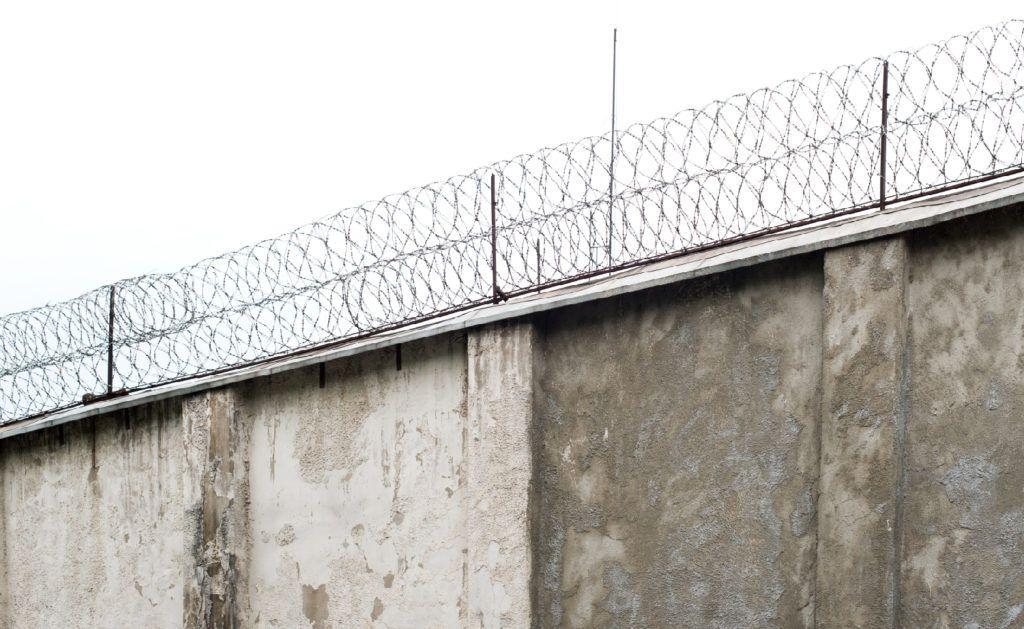
Like brick wall fences, a cement wall is also highly effective in creating an effective sound barrier. Concrete is one of the most common building materials in the world. It is also a highly dense soundproofing material, making it great for reducing noise levels. Just be sure that there are no holes or gaps in the material for best results.
Concrete fences are incredibly durable and long-lasting but may take time to install and are generally expensive. Despite these issues, most outdoor soundproofing projects use concrete since it effectively creates a noise barrier for all types of sounds.
Soundproof concrete fences are built from gravel, rock, and cement, creating the perfect density and mass combination. Concrete walls can be built around your home as required, but they should be reasonably tall to block noise effectively.
One significant advantage of concrete fences over other soundproof fences is that they do not allow vibrations to travel through. Being an immensely solid and dense material, concrete does not produce any vibrations, and it can absorb sound waves that pass through it. While this may be a costly option, it is also a permanent and effective soundproofing solution.
Concrete is one of the best soundproofing materials and works in areas where a timber or metal fence fails to solve the noise problem. Concrete walls can also be easily painted by overusing any preferred color to create a customized and more personal appearance.
8. Green Fences
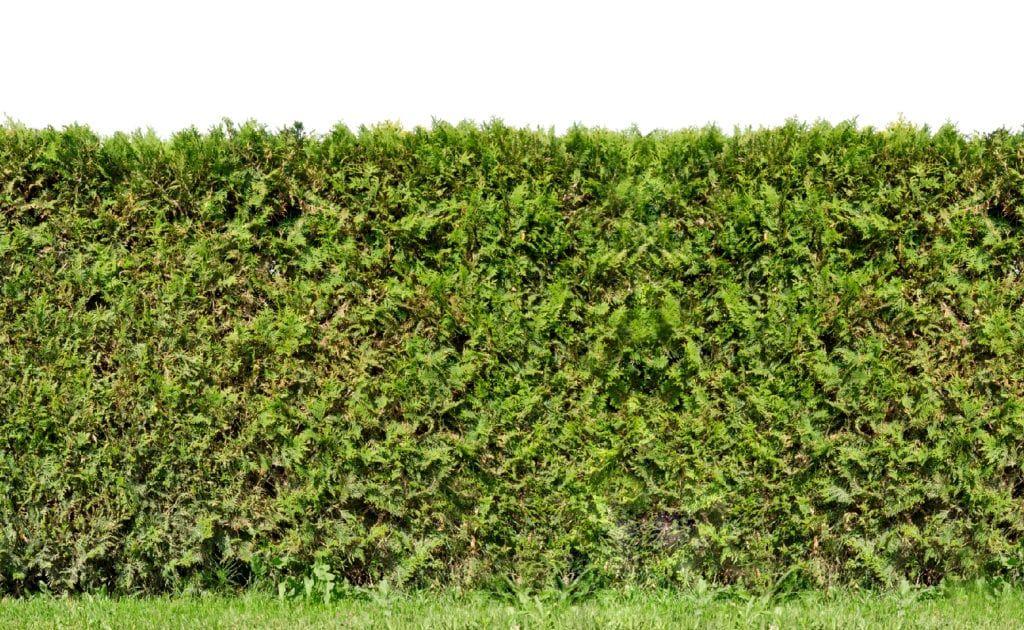
A green fence or a hedging fence works by sound attenuation, which means diminishing sound volume by dampening it. Thick hedges can be excellent in reducing sound in your home from the street or noisy neighbors. Additionally, they also act as a perfect privacy screen for your home.
Green fencing can be done in several different ways, and one of the most popular ones is having thick plantations on your fence. Besides offering noise insulation, green fences also provide a natural ambiance to your home.
The only concern is that such fences require a decent amount of time as the hedges need to grow to a level at which they are effective in blocking sound. To improve the effectiveness of such fences, they can also be combined with other types of soundproof fences.
Hedge fences can also last for up to a hundred years, so you do not need to worry about durability. Moreover, green fences offer many choices regarding the type of plantation you would like to use as a hedge.
Green fences can be used along with additional objects such as water fountains to make use of white noise, which helps distract unwanted sounds. They can offer a considerable advantage in reducing backyard noise and offer the added benefit of being environment-friendly.
9. Berms

While not strictly a fence in the traditional sense of the word, berms, when used correctly, can also be highly effective in blocking out sound. They are earth mounds that act as excellent sound barrier fences if they are built high enough.
Earth berms are best used to block noise from neighboring houses, but the installation for such structures is quite cumbersome. Also, the footprint of such berms can be quite large, which makes them unsuitable for areas with limited spaces.
Earth berms are essentially made up of dirt, so there is also erosion risk. To mitigate the problem of erosion, the berm has to be covered. Foliage can be a good choice for this, as it also provides a better aesthetic to the mound.
Berms also tend to compact over time, and you will need to add more earthen substance to maintain its height. Unless a berm is high enough, it will not act as a sound barrier fence.
Berms are created by moving earthen material to the spot where sound needs to be blocked. Earth berms are a viable alternative to freestanding noise walls because they offer comparable noise insulation but require lesser maintenance and can be built at a lower cost.
Factors to Consider When Choosing a Fence for Noise Reduction
Noise Source
When choosing and installing a fence for noise reduction, the source of the noise is key, everything that is what you are fighting against.
Is the noise coming from nearby traffic, or is it coming from an industrial source, such as a factory?
Depending on the source, different types of fences may fit the scenario but a professional acoustic engineer is the one who ought to examine your scenario, what and where you need the noise reduction fence as each situation is different.
Fence Height
Height always matters when it comes to fences, even more, when it comes to noise reduction fencing.
Taller fences will be more effective at blocking out noise usually but it all comes down to the relation between the source of the noise and the height of the fence. Fences, regular, and noise-reduction alike, are also extremely expensive so going higher might be necessary at times and also, extremely expensive.
Fence Material
The material of the fence will also affect its effectiveness at reducing noise.
As adding mass is the best solution to noise reduction, solid materials, such as wood, metal, and masonry will absorb sound better than materials like vinyl.
Do note that materials with a rough texture, such as chain links, can be effective at reflecting sound away from the property.
Installation and Maintenance of Noise Reduction Fencing
Preparing the Area
Before installing a fence for noise reduction, it is important to set yourself up for success, by preparing the area.
This can mean different stuff for each site but making sure the surface is level and free of any debris, removing any existing vegetation, and marking off the area for the fence are good practices.
It is also important to take into account the local building codes and any necessary permits that might be required.
Installation Procedure
The installation of the fence for noise reduction should begin with the posts which means they should be securely set in the ground, either by concrete or other secure means.
Proceed with the fencing material and attach it to the posts making sure you are still leveled, and taking all precautions to secure the fence properly at all times. The fence should be checked for gaps or holes that could reduce its effectiveness in noise reduction.
Maintenance Requirements
Maintenance of a fence is arguably a harder task than the installation process itself.
This includes checking for any loose or damaged parts, as well as any gaps or holes that could reduce its effectiveness.
It is important to ensure that the fence is regularly cleaned and that any vegetation near the fence is trimmed back to prevent it from interfering with the fence's ability to reduce noise.
The best materials for soundproofing a fence include solid wood, vinyl, composite, and metal panels. To install a soundproof fence, you should begin by setting up the posts and panels, making sure to use plenty of sealants, and then adding insulation materials such as acoustic foam or rubberized barriers. A fence is a great barrier between you and the source and thus can be quite effective in reducing noise, depending on the type and thickness of the material used, as well as the distance the fence is located from the noise source. Upkeep requirements for soundproof fences depend on the type of material used but generally include washing and resealing regularly and checking for any damage or signs of wear. The most effective type of fence for noise reduction is a solid wood panel fence, as this material blocks the most sound.Fence For Noise Reduction FAQs
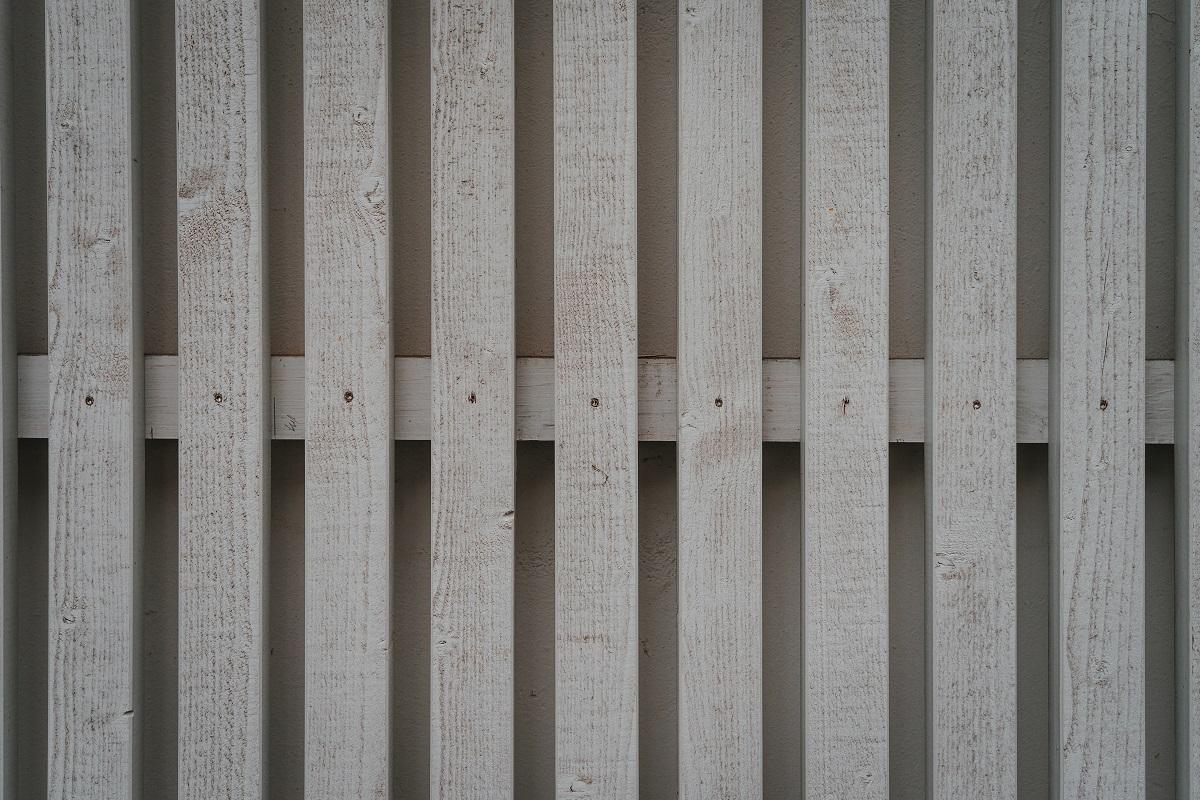
Fences for Noise Reduction Verdict
High sound levels are one of the leading causes of various problems, such as migraines, irritation, lack of focus, and so on.
And with ever-increasing sound levels, it is vital to take adequate measures to block unwanted noise from your vicinity. Soundproof fences are a tried-and-tested solution that can help you out in such situations.
Just keep in mind various factors, such as location and durability, when selecting the ideal fencing product for sound reduction, and you’ll be able to get some peace of mind.
Now, it is time for us to sign off. Until next time!
Related Articles
13 Best Solar Electric Fence Chargers
10 Best Electric Fences for Chickens
7 Best Electric Fence Chargers
How To Build A Horizontal Wood Fence
Get Creative With These 23 Fence Decorating Ideas and Transform Your Backyard
26 Insanely Cool Garden Fences Ideas to Materialize This Summer
